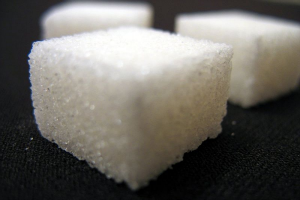 It’s no secret that sugar is incredibly bad for you. The typical American diet, which probably has more added sugar than any national diet in the world, is known to cause obesity, heart disease, diabetes, high blood pressure, liver disease, tooth decay, nutrient deficiencies, and of course, cancer (and that’s just the short list). Cancer in particular, has been connected to sugar consumption for some time now, by both mainstream and alternative medicine. Plenty of theories have been posited to explain the precise mechanism for how sugar fuels cancer growth, and it seems that modern science has just discovered another compelling link.
It’s no secret that sugar is incredibly bad for you. The typical American diet, which probably has more added sugar than any national diet in the world, is known to cause obesity, heart disease, diabetes, high blood pressure, liver disease, tooth decay, nutrient deficiencies, and of course, cancer (and that’s just the short list). Cancer in particular, has been connected to sugar consumption for some time now, by both mainstream and alternative medicine. Plenty of theories have been posited to explain the precise mechanism for how sugar fuels cancer growth, and it seems that modern science has just discovered another compelling link.
A study conducted by Lorenzo Cohen at the University of Texas was recently published in the Cancer Research journal. It found that sugar influences a metabolic pathway called LOX-12, which affects how cancer spreads in the body. This is big news, because as Cohen noted in an interview with NBC, “The majority of cancer patients don’t die of their primary tumor. They die of metastatic disease.” They discovered this link after feeding mice copious amounts of sugar.
Cohen’s team used mice for their study but say they took many steps to make sure the process was as close as possible to what happens in people. They fed sugar to the mice in doses very similar to what Americans eat every day, and they used mice that are genetically predisposed to breast cancer in much the same way that many people are.
They fed mice four different diets that were either heavy in starch or heavy in different types of sugar.
“A human study reported that dietary sucrose/fructose/glucose but not starch is associated with increased risk of breast cancer,” they wrote in their report.
When the mice were six months old, 30 percent of those fed a starch-dominant diet had breast cancer. But half the mice that had been fed extra sucrose had breast tumors. And the more sugar they were fed, the bigger the tumors grew.
While all forms of sugar contributed tumor growth, it was fructose that had the biggest effect. Mice that were fed the most fructose had stronger LOX-12 pathways, and as a result, grew the largest tumors. Considering that there is significantly more high fructose corn syrup (which is 55% fructose) in the American diet today than there was a few decades ago, this may explain why the United States has one of the highest cancer rates in the world.
What the study didn’t address however, is the relationship between naturally occurring sugars and cancer, or if there’s any link there at all. Fructose is of course, commonly found in fruit, and in smaller amounts, certain vegetables. That’s one of the reasons why representatives for the food industry claim that their sugary drinks and candies are relatively safe for human consumption.
Lorenzo Cohen stated that it’s simply a matter of quantity, since our bodies only need sugar in small amounts. “We need glucose. We need sugar. It is an energy source and we need it to live. We refine sugar that’s extracted from its source and consumed in extremely high quantities.”
On the other hand, the way these sugars are delivered to our bodies may be just as important as their quantity. While it’s true that the sugar in a candy bar is made of the same glucose and fructose as the sugar in fruit, it’s also wrapped up in fiber and other nutrients when found naturally in food. This serves to significantly slow down the absorption of sugar in our digestive tract.
So if you only ate sugar from natural sources, not only would you be eating less sugar since those foods usually don’t contain nearly the same amount found in processed foods, but that small dose of sugar would also be delivered to your body at a much slower rate. There’s a good chance that this LOX-12 pathway would be exposed to a negligible amount of sugar, if we stuck to a strictly natural diet.
Though the study doesn’t address the difference between natural and added sugar, it does sound like added sugar is the real culprit here. The recommended amount of added sugar for any diet, is no more 6 teaspoons a day for women and 9 teaspoons for men. Even when Cohen fed the mice an equivalent to those small amounts, it still contributed to tumor growth.
So it’s very possible that no amount of refined sugar is safe. The human body is simply not built to digest it in a healthy manner, and cutting it out of your diet should be your highest priority if you want to reduce your cancer risk.
